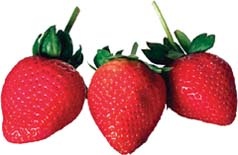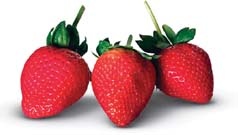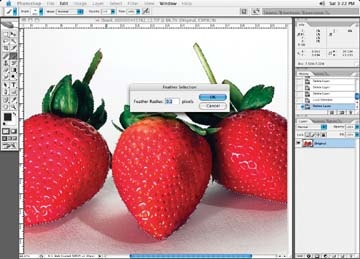Creating a Simple Shadow
Let's start our shadow work by creating a basic shadow for some strawberries. Our unretouched image, Figure 2-9, is a good example; most shadows I am asked to create are this type of simple basic shadow. Having said that though, one must pay special attention to the shape, size, and density of the shadow, as such a simple shadow on a stark background will look really out of place if it isn't correct. Using some basic techniques, we can give these strawberries a realistic shadow, as revealed in Figure 2-10.

Figure 2-9. Before: Shadowless strawberries in space

Figure 2-10. After: Strawberries with the proper shadow
Isolating the Image
To start, we'll need to isolate the image of the strawberries. If the image is being removed from a background and put on a white or tinted background, I usually crop the image with the pen tool. As you can see in Figure 2-11, I usually add a small amount of softness to the pen tool selection (Select → Feather), depending on what the rest of the image looks like. In this case, I've added a Feather Radius of 0.2.

Figure 2-11. Use the Feather command to add softness to an image when selecting
Note
It is very important to make sure that when ...
Get Commercial Photoshop Retouching: In the Studio now with the O’Reilly learning platform.
O’Reilly members experience books, live events, courses curated by job role, and more from O’Reilly and nearly 200 top publishers.

